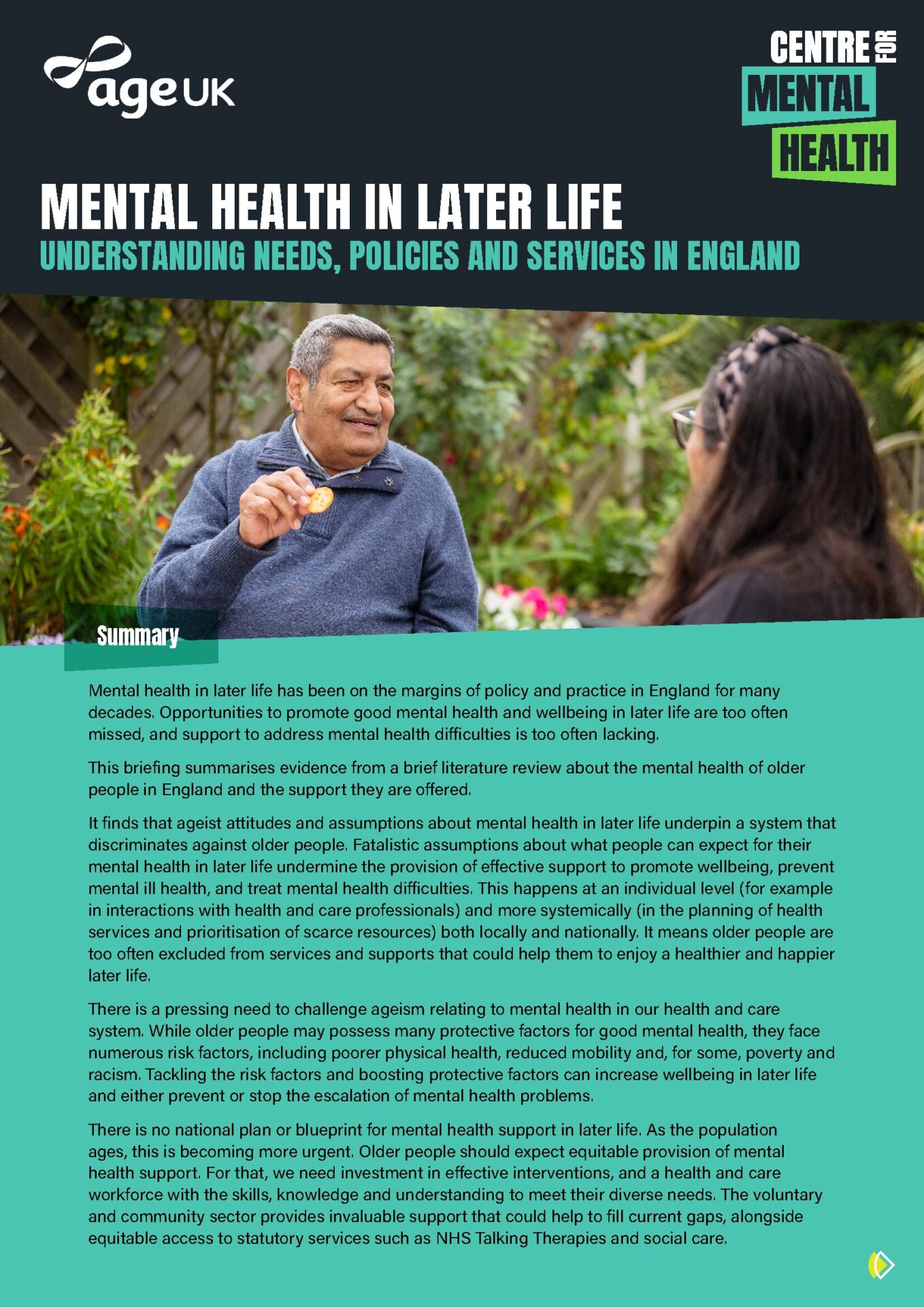UNDERSTANDING NEEDS, POLICIES AND SERVICES IN ENGLAND
Anna Iskander-Reynolds
Older people’s mental health has long been overlooked. Poor mental health is often dismissed by health professionals as an ‘inevitable’ part of getting older. And despite NHS Talking Therapies having higher than average recovery rates among the over-65s, this service is less likely to be offered to older people.
Commissioned by Age UK, this briefing summarises evidence about the mental health of older people in England. It finds that ageist attitudes underpin a system that discriminates against older people, while fatalistic assumptions about what people can expect for their mental health in later life undermine the provision of effective support to promote wellbeing, prevent mental ill health and treat mental health difficulties.
The briefing finds that while older people may possess many protective factors for good mental health, they face numerous risk factors, including poorer physical health, reduced mobility and, for some, poverty and racism. Tackling the risk factors and boosting protective factors can increase wellbeing in later life and either prevent or stop the escalation of mental health problems.

There is no national plan or blueprint for mental health support in later life. As the population ages, this is becoming more urgent. Mental health in later life opens up a conversation that has been left on the margins of policy and practice for too long, making key recommendations of how we can create better mental health for older people.




